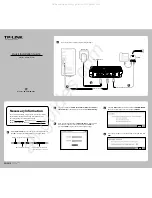
8/20q Fibre Channel Switch command line interface guide 131
13 Command reference
This section provides an alphabetical listing of the commands of the CLI and provides the following
information for each command:
•
Access authority
, page 131
•
Syntax and operands
, page 131
•
Notes and examples
, page 131
Access authority
The
Authority
paragraph in each command description indicates what types of sessions are required to
enter that command. Commands associated with monitoring tasks are available to all account names
without any special session requirement. Commands associated with configuration tasks are available only
in an Admin session. An account must have Admin authority to enter the
admin start
command, which
opens an Admin session.
Some commands require that you open additional editing sessions in an Admin session, such as the
following:
•
Commands that modify zoning require a Zoning Edit session, which is opened by the
zoning edit
command. These commands include the
alias
,
zone
,
zoneset
, and
zoning
commands.
•
Commands that modify device security require a Security Edit session, which is opened by the
security edit
command. These command include the
group
,
security
, and
securityset
commands.
•
Commands that modify the switch configuration require a Config Edit session, which is opened by the
config edit
command. These command include all of the
set config
commands.
•
Commands that modify the Call Home e-mail notification configuration require a Callhome Edit
session, which is opened by the
callhome edit
command. These commands include the
callhome
,
capture
, and
profile
commands.
•
Commands that modify the Internet Protocol Security configuration require an Ipsec Edit session, which
is opened by the
ipsec edit
command. These commands include the
ipsec
,
ipsec association
and
ipsec policy
commands.
Syntax and operands
The
Syntax
paragraph defines the grammatical scheme for using operands in the command:
command
operand
operand
[value]
operand [value1] [value2]
The
command
is followed by one or more
operands
. Consider the following rules and conventions for
using commands and operands:
•
Commands and operands are case-insensitive.
•
Required operand values appear in brackets:
[value]
. Optional operands and values are shown in
italics:
operand [value]
.
•
Underlined portions of the operand in the command format indicate the abbreviated form that can be
used. For example, the
delete
operand can be abbreviated
del
.
The
Operands
paragraph lists and describes each operand that can be used with the command and any
applicable values.
Notes and examples
The
Notes
paragraph presents information about the command and its use, including special applications
or its effects on other commands. The
Examples
paragraph presents sample screen captures of the
command and its output.
Содержание 8/20q
Страница 14: ...14 About this guide ...
Страница 20: ...20 Command line interface usage ...
Страница 24: ...24 User account configuration ...
Страница 38: ...38 Network configuration ...
Страница 90: ...90 Connection security configuration ...
Страница 100: ...100 Device security configuration ...
Страница 104: ...104 RADIUS server configuration ...
Страница 110: ...110 Event log configuration ...
Страница 130: ...130 Simple Network Management Protocol configuration ...
Страница 322: ...322 Command reference ...
Страница 332: ...332 Index ...
















































